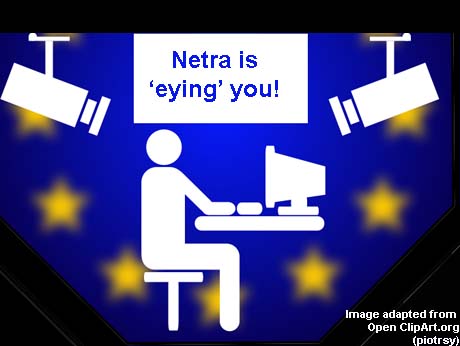
Bangalore, January 6, 2013: Journalists who send email or text messages to their news desks asking that this or that item be ' killed' -- time honoured media jargon for ' don't use' -- had better come up with another word. Holidaying citizens who are tempted to send tweets about how they are 'killing' time on the beach, do so at their peril. Project leaders exhorting their team members by group mail, to ' attack' the problem on hand, may find themselves subjected to some heavy handed scrutiny. And if you invited friends to have a 'blast' at your party, you may find some uninvited guests dropping in complete with handcuffs.
The Press Trust of India reports that agencies of the Indian government are all set to deploy an Internet surveillance system that will trawl Net-fuelled voice calls, tweets, emails. blogs, instant messages and the like looking for words like 'kill', 'bomb', 'blast' and 'attack' in an attempt to pre-empt baddies even as they plan malafide acts.
The system called Netra ( or 'eye') has been developed at the Defence Research and Development Organisation's Bangalore-based Centre for Artificial Intelligence and Robotics (CAIR). Netra has been successfully tested by the Intelligence Bureau and the Cabinet Secretariat, adds PTI and The actual deployment is said to be under discussion by concerned agencies including DRDO, the Home Ministry, the Centre for Development of Telematics (C-DOT) and the Computer Emergency Response Team (CERT-In)
As a sort of cap on how much Net traffic they are allowed to monitor, the agencies concerned are said to be allocated between 300 GB and 400 GB of storage for the purpose.
Netra appears to share some common features with the US National Security Agency's PRISM programme of clandestine surveillance.
(PS: This Netra is not to be confused with the autonomous Unmanned Autonomous Vehicle ( UAV)for surveillance and reconnaissance operations, jointly developed a few years ago by DRDO's Pune -based Research and Development Establishment (R&DE) and a private partner IdeaForge)